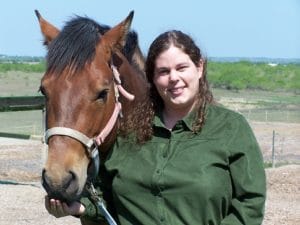Comments by Grassroots Farm and Consumer Groups Made an Impact
Organizations representing family farmers, ranchers, and consumers from across the country express cautious optimism about the impact of U.S. Department of Agriculture’s (USDA’s) announcement today of its final Animal Disease Traceability (ADT) rule. The rule was publicly released by the USDA on December 20.
More than 60 organizations had expressed concerns about the costs and impracticality of the proposed ADT rule when a draft was published in August 2011, and the USDA had received numerous public comments.

“Thousands of individuals, including both producers and consumers, spoke out against the burdens that the proposed rule would place on cow-calf operations, sale barns, small farmers, and backyard poultry owners,” stated Judith McGeary, Executive Director of the Farm and Ranch Freedom Alliance. “The final rule appears to address many, although not all, of their concerns. It is very encouraging to see citizen action making a significant impact.”
Among the important changes announced by USDA are:
- The exclusion of chicks sold by hatcheries across state lines from identification requirements;
- The recognition of brands and tattoos as official forms of identification;
- The continued use of back tags as an alternative to ear tags for cattle going to slaughter; and
- The exclusion of beef feeder cattle from this rule, except for rodeo and show cattle.
“We are very pleased that the western cattlemen’s concerns about recognizing brands and exempting feeder cattle were listened to. Ear tagging feeder cattle would impose significant burdens on farmers and ranchers,” noted Gilles Stockton, a Montana rancher and member of the Western Organization of Resource Councils. “With the USDA pledging to address feeder cattle in a separate rule rather than including it in this one, we will be better able address the complicated issues.”
Over the next several weeks, policy experts from family farm organizations will be carefully analyzing the details of the 145-page document to determine the impact the final rule will have on the farmers and ranchers. USDA announced that the rule will be published in the Federal Register on December 28, 2012, and will be become effective 60 days later.
“Call me a skeptic, but there are a lot of moving pieces to this new rule,” said Mark Kastel, senior farm policy analyst at The Cornucopia Institute.
For years corporate agribusiness, including the powerful National Cattlemen’s Beef Association (NCBA), pushed for an what was described as an onerous ID law allegedly given giving feedlots an advantage over family farmers. Grassroots groups suggested the initiative was much more about export promotion than preventing disease and livestock which was being well-controlled monitored by current state programs.
“With the lobbyists at the NCBA applauding this rule as well, family farmers and ranchers, and the organizations that support them, need to remain on-guard in monitoring how this is implemented and the future rulemaking discussion on feeder cattle,” Kastel added.
“We need to review the actual language of the rule, of course, but based on the information released today, it looks like USDA has listened to several key concerns raised by numerous groups throughout the process,” stated Bill Bullard, CEO of R-CALF USA.
For more information, contact:
Judith McGeary, Farm and Ranch Freedom Alliance, 512-484-8821
Bill Bullard, R-CALF USA, 406-252-2516
Gilles Stockton, Western Organization of Resource Councils, 406-366-4463
Kathy Ozer, National Family Farm Coalition, 202-543-5675
Patty Lovera, Food and Water Watch, 202-683-2465
Mark Kastel, The Cornucopia Institute, 608-625-2000

